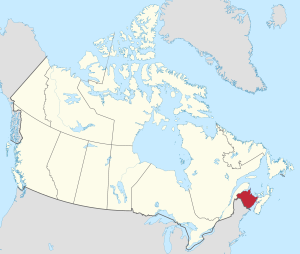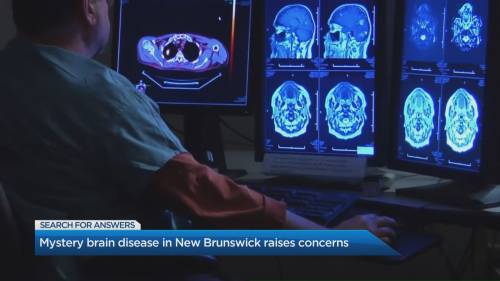A mysterious brain disease ‘cluster’ is currently under investigation in Canada. Symptoms of the mystery illness include memory loss and hallucinations.

The following written content from Rachael Rettner
Officials in Canada are racing to find the cause of a mysterious brain disease that has afflicted more than 40 people in the New Brunswick province, according to news reports.
Symptoms of the mystery illness resemble those of Creutzfeldt-Jakob disease (CJD), a rare and fatal brain disorder; and include memory loss, hallucinations and muscle atrophy, according to The Guardian.
Earlier this month, Canadian officials alerted doctors in the New Brunswick area that they were monitoring a cluster of 43 cases of neurological disease of unknown cause, The Guardian reported. The first identified case dates back to 2015, but officials have noted a rising number of cases in recent years, with 24 cases reported in 2020 and six so far in 2021, according to CBC News. Five deaths have been linked with the disease.
Related: 10 things you didn’t know about the brain
Doctors first suspected the cases were CJD, which is caused by abnormally folded proteins called prions. But tests conducted so far show no evidence of CJD, nor of any other related prion disease.
“There is no evidence, not a hint — even in the three autopsies that have been performed — of a human prion disease,” Dr. Neil Cashman, a professor at the University of British Columbia who studies prion diseases and is involved in the new investigation, told CBC News. “That came as a surprise to me, frankly.”
Multiple research teams are now investigating the cause, which could be a brand-new illness or several different disorders that are already known. “This was a call to arms to identify the cause,” Cashman said.

Patients with the illness have developed progressively worse symptoms over 18 to 36 months, from unexplained pains and spasms to cognitive decline, muscle wasting and teeth chattering, The Guardian reported.
Most cases so far have been identified in the Acadian Peninsula in northeast New Brunswick and near Moncton, a city in southeast New Brunswick, according to CBC News.
Given that the cases appear to be limited to a certain region, it’s possible these cases are due to an environmental toxin, CBC News reported.





